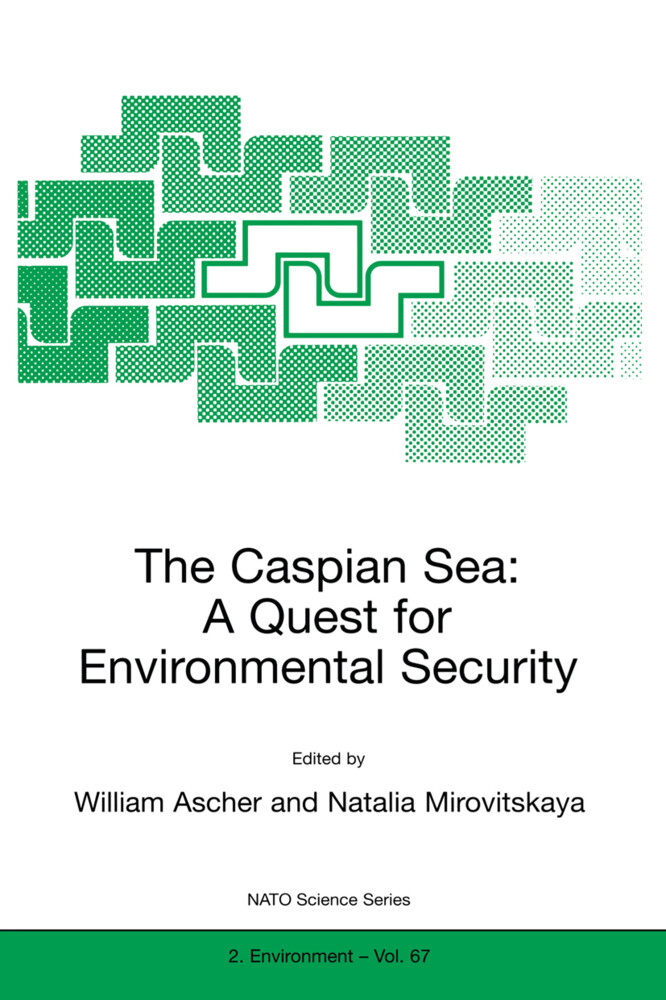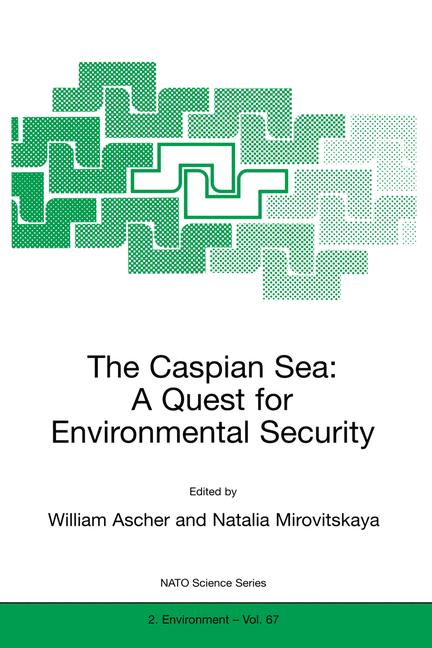Bücher versandkostenfrei*100 Tage RückgaberechtAbholung in der Wunschfiliale

Zustellung: Di, 18.02. - Fr, 21.02.
Versand in 1-2 Wochen
VersandkostenfreiBestellen & in Filiale abholen:
This volume is based on the presentations and deliberations of an Advanced Research Workshop (ARW) "Caspian Sea: A Quest for Environmental Security" that was held on March 15-19, 1999, in Venice (Italy). The Workshop was sponsored by the NATO's Division for Scientific and Environmental Affairs, with additional support provided by the Trust for Mutual Understanding (USA). It was organized by Duke University's Center for International Development Research with the guidance of the International Committee of scientists from Russia, United States. Georgia and Italy and organizational assistance rendered by Venice International University. The Caspian Sea region is of profound importance from the perspective of global and regional environmental security. New geopolitical and economic circumstances have created a mixture of competition. reluctant collaboration, and legal, political, economic and ideological wrangling. There is an intense debate over how the Caspian and its resources should be divided among littoral states and how these resources are to be developed. While most littoral states and the international companies strive to develop the area's immense hydrocarbon potential, it is clear that the Caspian's unique and fragile ecosystem is at risk.
Inhaltsverzeichnis
1. Introduction. - A. What is at Stake in the Caspian: Development versus Environment? . - 2. Environmental Change and Human Security in the Caspian Region: Threats, Vulnerability and Response Strategies. - 3. International Good Governance and Civilized Conduct among the Caspian States: Oil and Gas as Lever for Prosperity or Conflict. - 4. Regional Developmental Requirements and the Role of Caspian Development. - 5. Ecological Consequences of Oil and Gas Development. - 6. New Methods for Managing Caspian Sea Level Fluctuations. - B. Caspian Geopolitics. - 7. The Geopolitics of the Region. - 8. Security and the Environment in the Caspian Sea. - 9. Security Problems in the Caucasus. - 10. The International Politics of Energy in the Caspian Sea Basin: Russia, Turkey and the Pipeline Project. - C. Law and Development. - 11. The Caspian and International Law: Like Oil and Water? . - 12. Basic Legal Issues of the Management of Natural Resources of the Caspian Sea. - 13. Caspian Legal Regime: Dynamics of Kazakhstan s Position. - 14. The Tug of War in the Caspian: Legal Positions of the Coastal States. - D. The Role of Civil Society & Scientific Institutions. - 15. Environment and the Development of Civil Society in the Caspian Region: The Role of NGOs. - 16. How NGOs Abandoned Governance in the Caspian Region. - 17. The Political Role of Civil Society in Georgia. - 18. The State of Scientific Research on the Caspian Environment: Russian Data. - E. Prospects of Effective International Cooperation. - 19. Regional Cooperation:Lessons for the Caspian Sea. - 20. Technodiplomacy and Environmental Cooperation:Lessons for the Caspian. - 21. Applying Lessons from the Aral Sea Basin:The Role of Non-State Actors. - 22. National, Subnational, and International Politics:Environmental Regime-Building in theCaspian Sea. - 23. Caspian Environment Programme: Prospects For Regime Formation and Effectiveness. - F. Conclusions. - 24. Moving toward International Cooperation in the Caspian Region: Insights from the Workshop.
Produktdetails
Erscheinungsdatum
30. April 2000
Sprache
englisch
Auflage
2000
Seitenanzahl
384
Reihe
NATO Science Partnership Subseries: 2
Herausgegeben von
William Ascher, Natalia Mirovitskaya
Verlag/Hersteller
Produktart
gebunden
Abbildungen
XIV, 364 p.
Gewicht
740 g
Größe (L/B/H)
241/160/26 mm
Sonstiges
HC runder Rücken kaschiert
ISBN
9780792362180
Entdecken Sie mehr
Bewertungen
0 Bewertungen
Es wurden noch keine Bewertungen abgegeben. Schreiben Sie die erste Bewertung zu "The Caspian Sea" und helfen Sie damit anderen bei der Kaufentscheidung.










